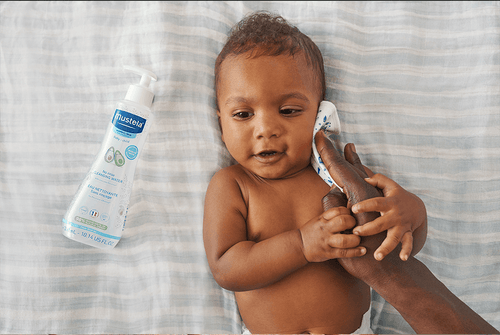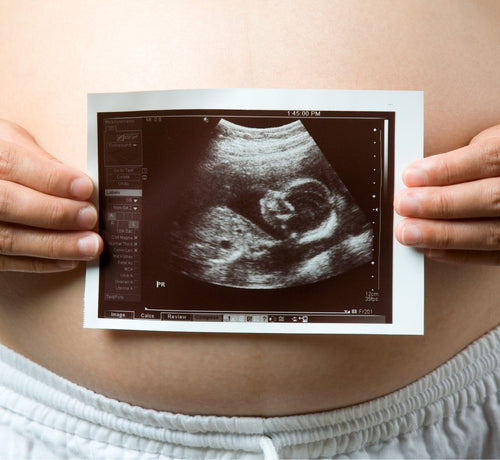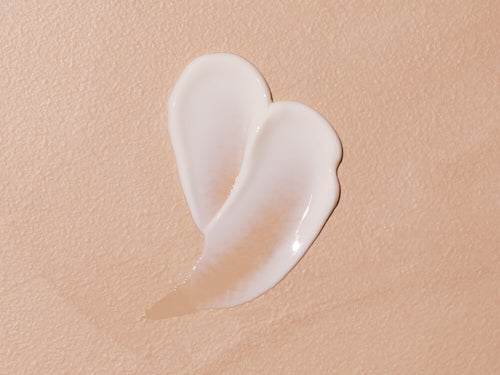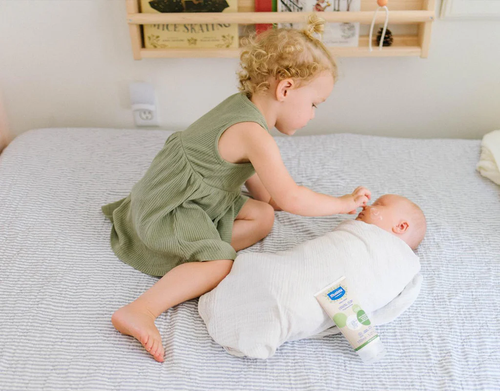If you’re a first-time mom-to-be, you’re likely asking everyone you know: “When can you feel your baby kick?”
We understand your enthusiasm. The first tiny flutters of your baby kicking are some of the most exciting moments in your pregnancy!
In this article, we tell you everything you need to know to prepare you for all of your baby’s movements.
What Does A Baby Kick Feel Like?

Pregnant women everywhere describe their baby’s movements in different ways — butterflies in their tummy, nervous twitches, even a tumbling motion.
At first, you’ll likely have a hard time distinguishing your little one’s movements from your own natural body movements, like gas, indigestion, and hunger pangs.
By the second and third trimester, though, you’ll be able to feel a difference between your body’s activities and the sharp jabs of your baby’s feet, knees, elbows, and hands. Experienced moms will tell you that a kick feels like someone is flicking or poking you from the inside out.
There’s little to no pain in the early stages of your pregnancy, just a quick pressure and release. But as your baby grows, you may experience some discomfort or minor pain when they kick or move around.
Sometimes, your little one will decide to stretch and put more continuous pressure on your belly for a while. But, for the most part, your baby’s kicks will feel more akin to a bubble bursting in your stomach.
All of that said, when can you feel your baby kick? We’ll discuss the timeline of baby movement in the next section.
When Can You Feel Your Baby Kick?

You’ll feel your baby’s first movements anywhere between weeks 14 and 26. Scientists and doctors call this period of time the “quickening.”
There are a lot of variables that go into feeling your little one’s movements, so don’t get down on yourself or worry that there’s a problem if you don’t feel something until week 18, 22, or even 26.
To help you gauge your baby’s development, we’ve put together a timeline that answers the question, “When can you feel your baby kick?”
First Trimester
During the first three months of your pregnancy, you will not feel any baby kicks, punches, or movements of any kind.
Even though your baby will develop at an astoundingly fast rate during the first twelve to fourteen weeks, they are far too tiny — and buried far too deeply in your womb — for you to feel anything at all.
Second Trimester
During the fourth and fifth months of your pregnancy, the chances of feeling your baby kick increase dramatically.
At first, you’ll just feel general movement — which you might mistake for muscle spasms — but, eventually, your little one will be strong enough to put some force behind their movements so that you feel the quick pressure and release we mentioned earlier.
If you haven’t felt any movement by the middle of the fifth month, talk to your OBGYN. They will likely order an ultrasound to see how your baby is doing. And, by all means, don’t panic!
In most cases where the mom doesn’t feel movement in the fifth month, it turns out that their due date is off and the baby isn’t as far along as was expected.
Third Trimester
After the initial exhilaration of your baby’s first kicks during the second trimester, the movement in the third trimester becomes more regular and forceful.
From here on out, you should expect to feel your little one’s kicks and other movements for the rest of your pregnancy. You may even feel a twitch when your baby hiccups!
By week 28, some of your baby’s kicks and punches may take your breath away if they aim them just right. Again, don’t panic. That just means your little one is growing stronger.
At week 36, it’s pretty crowded in your belly. Your baby is as big as they’re going to get, and they probably feel like they’re wrapped in a soft, warm blanket all day long.
Because of the space constraints, your little one’s movements may slow down a bit. You should, however, still feel consistent movement throughout the day.
Talk to your doctor if you notice significant changes in your baby’s usual activities. They may move less or not as forcefully as before, but they will still usually hold to the same schedule of action and rest as the previous few months.
Should You Monitor Your Baby’s Kicking?

By all means, keep track of your baby’s kicking! In fact, somewhere around the sixth month of your pregnancy, your doctor may instruct you to make a note of how often your baby kicks and how active they are when they do.
Your doctor will give you more specifics, but here’s an easy way to get started.
When To Monitor
We suggest setting aside time twice a day to pay extra attention to your baby’s kicks and jabs (some of them might get lost in the movement of your daily activity).
Feel free to find the times that work best for you, but a good place to start is in the morning when you first wake and in the early evening before bed.
How To Monitor
You’ll need a timer of some sort for this activity, so make sure there’s a clock nearby or start the stopwatch on your phone.
Next, focus on your body and count any kind of movement that your baby makes — kicks, flutters, swishes, rolls, punches, etc. When you’ve counted a total of 10 movements, note the time on the clock or the stopwatch.
A total of 10 movements in an hour or less is normal, though sometimes it takes longer (you may have picked a time when your baby is napping or is naturally less active).
Repeat the monitoring process at a different time during the day and compare the results.
If you can pay attention to your baby while doing something else, this is a great time to watch TV, read, or take care of your skin! We recommend reading because it’s quiet and your focus is much more internal than it would be if you were watching TV.
If reading isn’t your thing, play a game on your tablet, do a crossword puzzle or sudoku, or lounge in the bathtub for a while. Just be sure to keep your attention on your baby as much as possible.
What If You Don’t Feel Your Baby Moving?

In this section, we’ve included some common reasons why your little one’s kicks may decrease to the point that you won’t feel them moving.
However, if you’re concerned about fetal movement, talk to your doctor about when you should feel your baby kick. They’ll be able to give you all of the information you’re looking for.
Your Baby Engages
When your baby’s head drops down — engages — into your pelvis in preparation for birth, their activity level could change.
You might not feel the kicks as acutely because their feet are now higher up in your body. You will, however, start to feel every movement of their head (which is now pressing on your cervix).
Even with this dramatic change, continue to monitor every kick and wiggle. If you feel that something isn’t right, talk to your doctor.
Your Baby Changes Position
After feeling your baby’s kicks for a while, if they should suddenly change or stop, you’ll definitely miss them. Sometimes, though, this is exactly what happens during the middle or end of your second trimester.
Your baby is still quite small in comparison with your womb, so it’s possible that your little one repositioned in such a way that the bulk of their movements don’t register.
This is completely normal! Soon enough, as the third trimester approaches, you’ll start to feel every little twitch and shimmy again.
Your Baby Is Asleep
If you’re concerned about when you can feel your baby kick because you haven’t felt any movements at all in an hour or so, it may be because your baby has decided to take a nap.
There’s not a lot to do in your womb, and even though your little one probably sticks close to a regular schedule, there’s nothing to prevent them from falling asleep at any time.
Enjoy Your Pregnancy

Pregnancy is a wonderful time to be a woman! But it does come with some changes that you might find hard to swallow: your growing belly, your lack of energy, stretch marks, and dry skin.
We can’t help with the first two, but we can certainly help with the last two!
Mustela offers a wide variety of products to minimize the appearance of stretch marks and help keep your skin firm, soft, and hydrated, including:
You will enjoy your pregnancy even more when you’re comfortable in your skin and prepared for the kicks and punches that come in the second trimester.
Consider those movements a sign that your little one is growing big and strong!
Soon enough, they’ll be squirming and wiggling in your arms instead of your belly and you’ll have other milestones to look forward to. That’ll be a wonderful time, too!

















